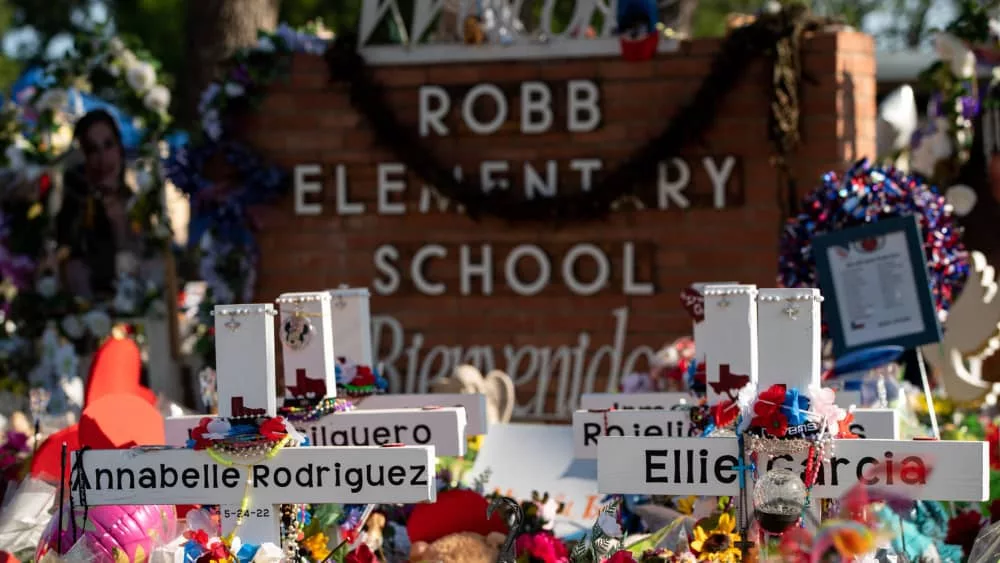On Thursday, the Justice Department said that children’s lives may have been saved if officers had responded differently to a gunman who opened fire in the 2022 mass shooting at Robb Elementary School, which killed 21 people, including 19 students. Attorney General Merrick Garland said during a news conference that delays caused by a lack of leadership, training and tactics led to a police response “failure” in the mass shooting in Uvalde, Texas.
While detailing the findings of the U.S. Justice Department’s critical incident review of the tragedy, Garland said “the law enforcement response at Robb Elementary School on May 24, 2022, and in the hours and days after, was a failure that should not have happened … As I told families and survivors last night, the department’s review concluded that a series of major failures, failures in leadership, in tactics, in communication, in training and in preparedness were made by law enforcement and others responding to the shooting at Robb Elementary. As a consequence of failed leadership, training and policies, injured and scared students and teachers remained trapped in the classroom with the subject waiting to be rescued.”
The 600-page report, which documented a series of police missteps during the more than an hour that authorities waited to rush into the classroom, said that ooor coordination, training and execution of active shooter protocol contributed to a law enforcement response that can only be described as a “failure.” The investigation found that Uvalde police officers had received improper active shooter training in the months leading up to the attack, and they were erroneously taught that “an active shooter event can easily morph into a hostage crisis.”
The findings describe a chaotic scene that should have triggered several coordinated responses by law enforcement officers who first arrived at the school. Instead, a dearth of leadership contributed to officers failing to recognize an active shooter and waiting far too long to engage the gunman. The report said: “The resulting delay provided an opportunity for the active shooter to have additional time to reassess and reengage his deadly actions inside the classroom. It also contributed to a delay in medical interventions with the potential to impact survivability.”
The Justice Department collected more than 13,000 items for review and analysis, including policies, procedures and training materials from responding agencies; manuals; and hours of video, photos and interview transcripts. The DOJ said that there were at least 10 “stimulus events” over the span of more than an hour that could have driven law enforcement officers to take steps under active shooter protocols to “immediately stop the killing … During that period, no one assumed a leadership role to direct the response towards the active shooter, provide situational status to responding officers, establish some form of incident command, or clearly assume and communicate the role of incident commander.”
Editorial credit: Jinitzail Hernandez/ Shutterstock.com
